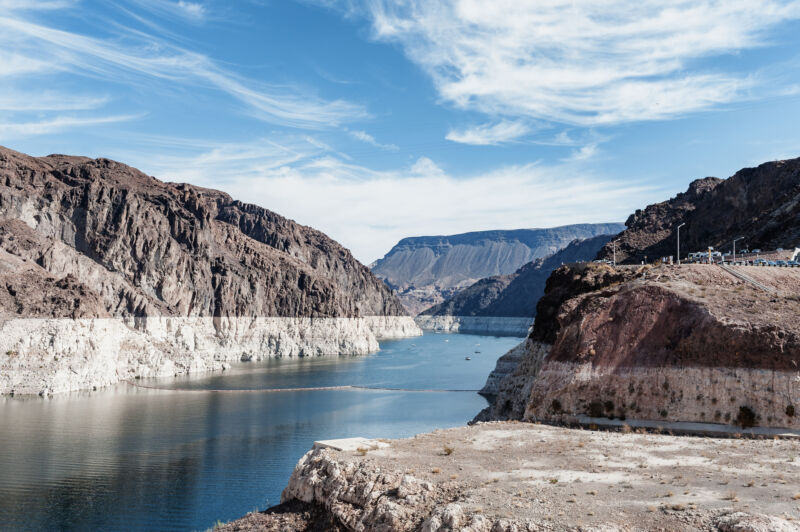
Enlarge / The white areas on the walls near Lake Mead provide an indication of how much its waters have dropped. (credit: Lingqi Xie)
About half of the contiguous US is currently experiencing moderate to extreme drought—including almost all of the West. That shouldn’t come as a surprise, as widely pervasive drought has been present for quite a while now in this region, where major reservoirs like Lake Powell and Lake Mead are hovering around all-time low-water levels. But how does this ongoing drought compare to the past? After all, the region is no stranger to dry stretches.
A 2020 paper examined the 2000-2018 data in the context of a tree ring reconstruction going back to the year 800 and stretching from Southern California to Wyoming. That team found that this was likely the second-driest period in the record, beat out only by a megadrought in the late 1500s.
At the time, the paper's authors guessed that good precipitation in 2019 would be enough to end the extended drought. But instead, a particularly wicked 2021 kept the drought alive. As a result, three of those researchers—UCLA’s Park Williams and NASA’s Benjamin Cook and Jason Smerdon—decided to update the numbers through 2021.
No comments:
Post a Comment